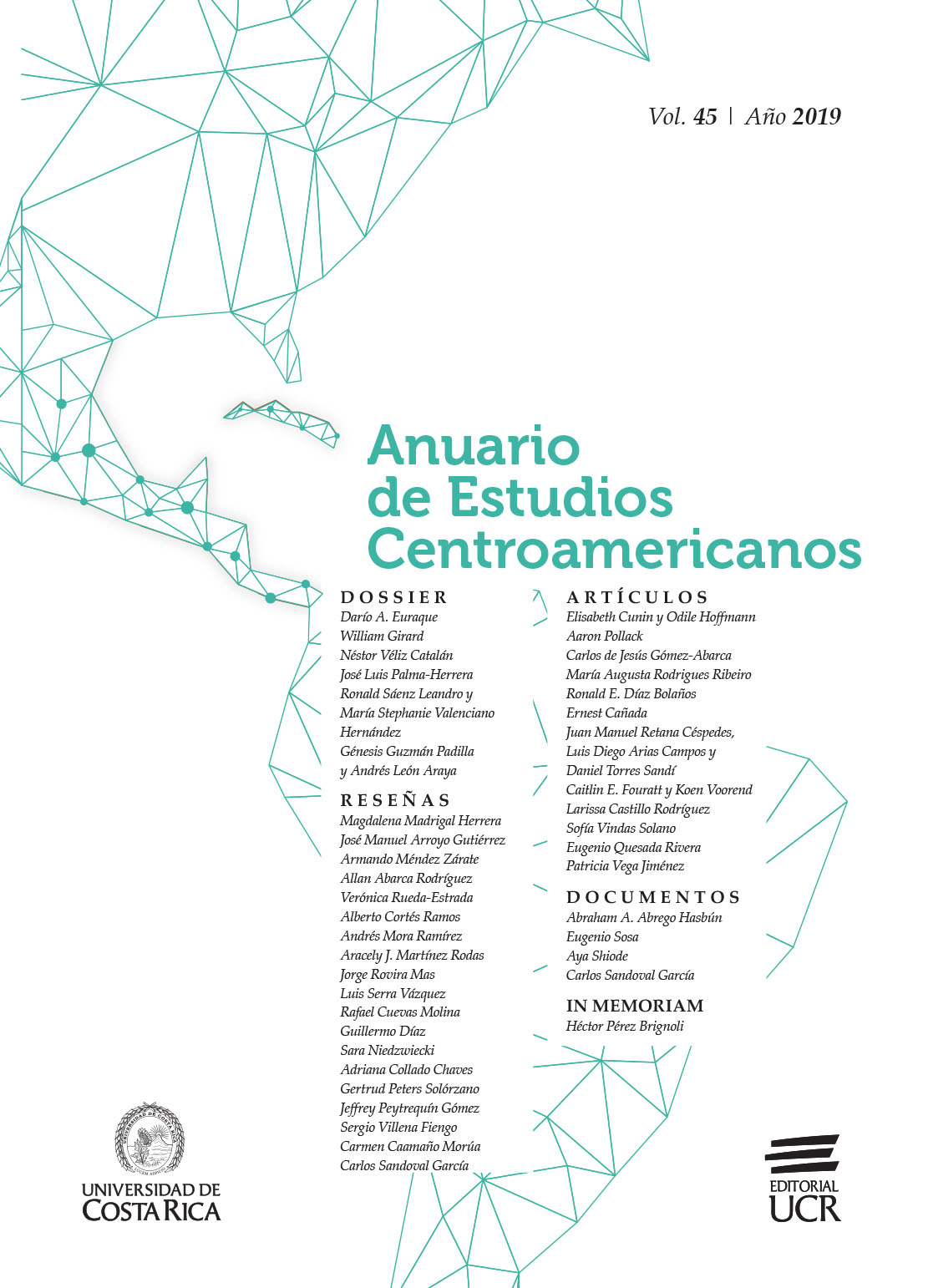Abstract
This article addresses the problematic formation of Honduran elites prior to the Coup d’tate in Honduras that in 2009 overthrew the government of Presidente Manuel Zelaya Rosales, elected democratically at the end of 2005. That and subsequent events generated one of most important political and social crises in Honduras during the last 50 years, a crisis that was already in the making in the short run even in 2005. The coup of 2009 destroyed almost thirty years of democratic governance established after a National Constituent Assembly in 1982 forced the transition to civilian rule after almost twenty years of military regimes. The international community denounced the events of June 28th, 2009 as a military coup, including the regime installed then and that ruled until the 27th of January of 2010. The regime installed in June 2009 was not recognized by virtually any government, including the U.S. and all countries in Latin America. Two months after the 2009 coup a focus of interpretations of its key events profiled the protagonists who were evident members of a so-called capitalist “oligarchy” composed of 10 to 12 elite families. This article contextualizes this interpretation in historical context, and it offers an argument and hypothesis about said interpretation.


